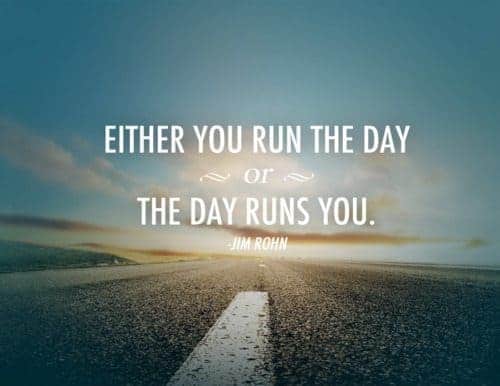How to Deal With Rejection
There is nothing quite like the feeling of rejection.
Whether it’s from your first choice of colleges, a relationship gone awry, or a layoff at your job; we all know this terrible feeling.
A question asked by many is: why does rejection hurt and what can we do differently so we don’t feel so bad?
Keep reading to discover why rejection stings and how we can handle it to become better, stronger people.
Why Rejection Hurts
To be told that you’re not wanted, that you’re not needed, or that there is someone or something better, is hard to hear.
Our brains, our egos, and our hearts can’t make sense of it.
Our defenses flair up, our minds race, and the by-product of rejection is usually feeling either terrible about yourself, or warding off this terrible feeling by dismissing it.
How We Cope with Rejection
Some of us can hear our friends or caregivers in the background saying, “You’re better off without him!”
or “everything is meant to be; you’ll be fine.”
These gestures, usually meant to be intentionally kind by our support network, have a tendency to want to assuage the painful feeling that someone or something doesn’t want you.
What We Can Learn From Rejection
While difficult to deal with, there are lessons to be learned from rejection.
Instead of warding it off with every tool in your arsenal, you would be surprised by the amount of self-growth that can take place.
You just have to allow it to happen.
Psychology Helps Us Understand Rejection
While there are numerous ways to understand the psychology behind rejection – cognitive therapy is one of them.
Cognitive dissonance, a term used often in this discipline, refers to when there is a feeling of discomfort when we hold two conflicting beliefs.
In order to provide some relief to our minds, we change our thoughts in order to eliminate or reduce the dissonance.
Confused?
Don’t worry, you’re not alone.
Take for example a smoker.
Notice that despite the mounds of research, they still don’t quit smoking.
Many of us wonder, why?
While the addiction is powerful in its own right, the question still nags at our minds…why don’t they quit?
Cognitive dissonance comes to mind.
The smoker, while knowing that smoking could kill them, replaces this discomforting thought with “if I stop smoking, then I’ll gain weight, and that could have a negative health effect.”
Or maybe they say, “Smoking kills some, but not all. It’s not absolute.”
Or, “The addiction is more powerful than me. I simply can’t win.”
Another favorite is “If I stop smoking, I’ll be too stressed out.”
These are all examples of cognitive dissonance.
The smoker is holding two conflicting thoughts (I like smoking but it will kill me).
They replace these thoughts with something more comforting (I’ll be too stressed out so I can’t quit).
How We Block the Pain of Rejection
When someone or something rejects us, we do everything in our power to shield ourselves from the pain that “I am somehow flawed.”
The cognitive dissonance quandary comes into play.
“I like myself, but she doesn’t like me.”
These conflicting thoughts sometimes are just too hard for the psyche to digest.
As a way to ease the pain, we will replace these incredibly difficult thoughts with something more comforting such as, “I didn’t like her anyway.”
While telling ourselves certain thoughts can be comforting at the moment, we want to be wary of selling ourselves a new storyline that may or may not be accurate.
How Rejection Can Help You Grow
One of the most powerful insights that can come out of rejection is self-reflection. Be honest with yourself and ask questions, such as:
- What was the reason behind the rejection?
- Is there any truth to what they said?
- What in my character is something that needs work?
When you allow these more vulnerable thoughts to enter your mind, you curate self-growth.
Self-growth is how we evolve, and how we create new experiences.
It’s how we don’t repeat the mistakes of the past, in the present.
Rejection is painful.
Rejection hurts the heart in ways that can feel insurmountable.
However, don’t coil up.
Breathe in that you are human, flawed like the rest of us – and you are on this planet to grow.
Have you ever experienced a painful rejection in your life?
Do you feel like this rejection helped you grow to become better somehow?
Tell us in the comment section!
We would love to hear from you!











